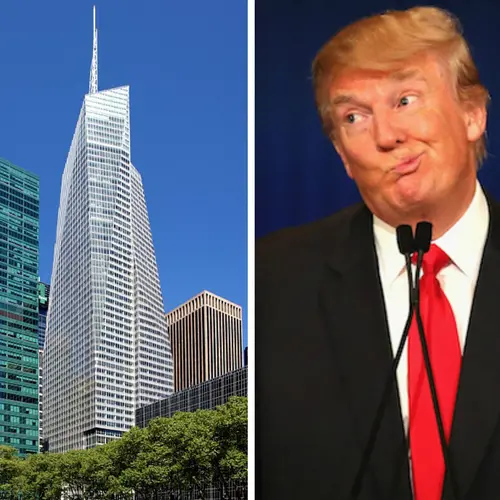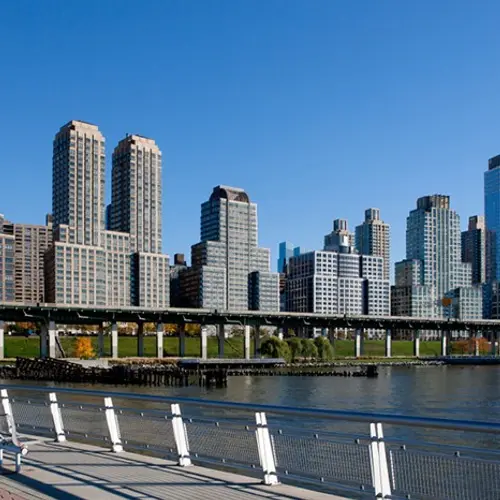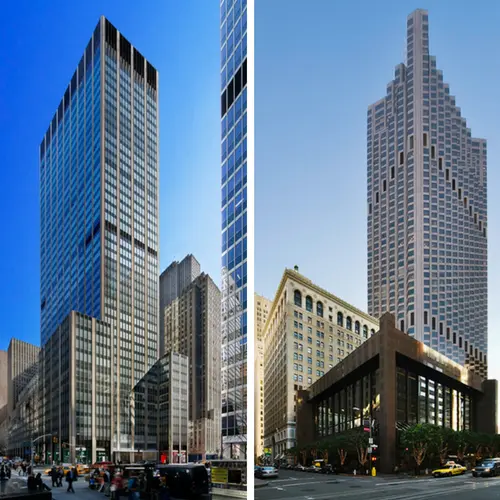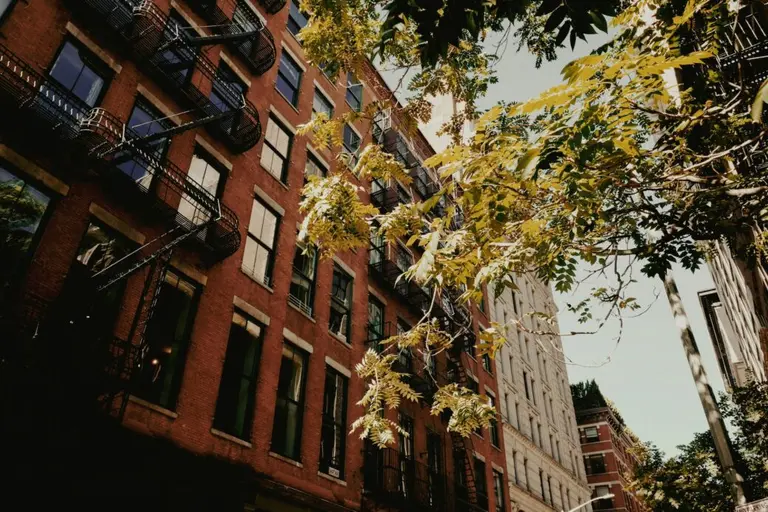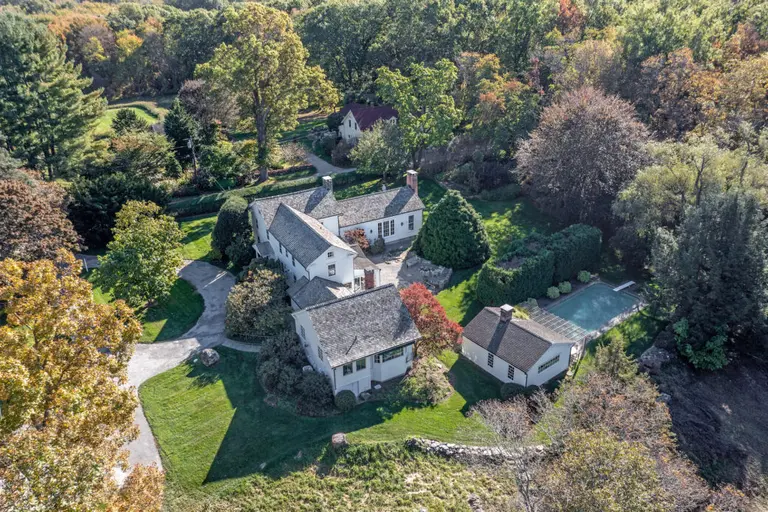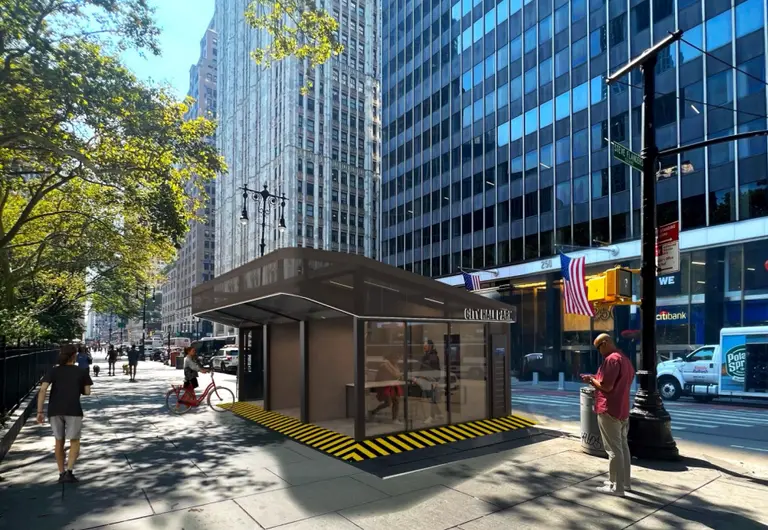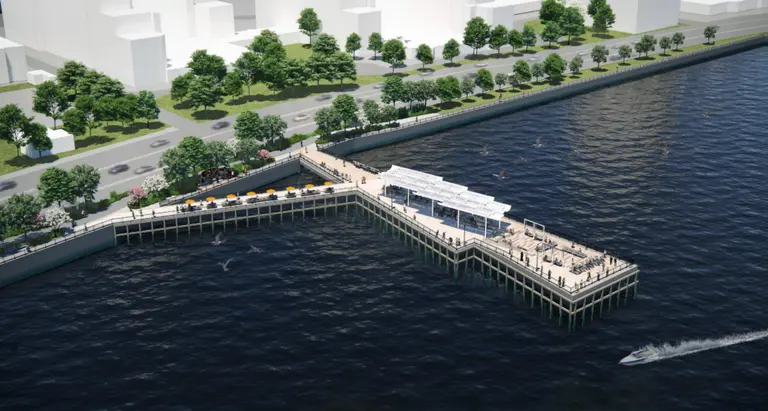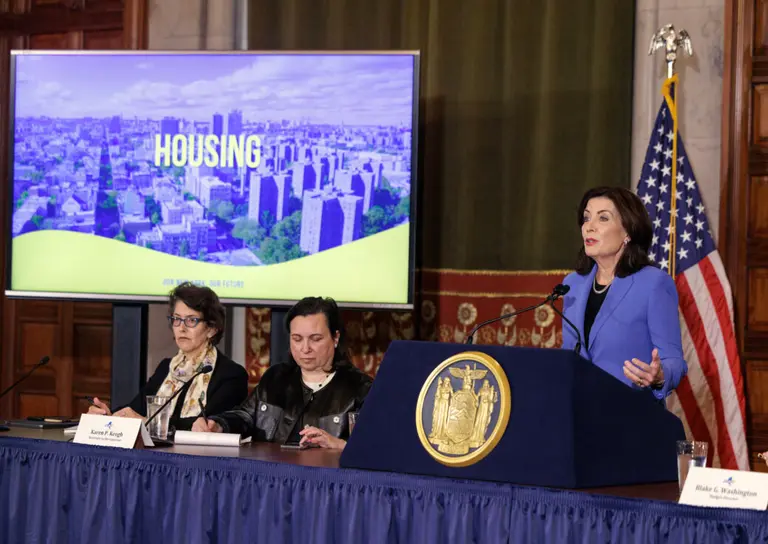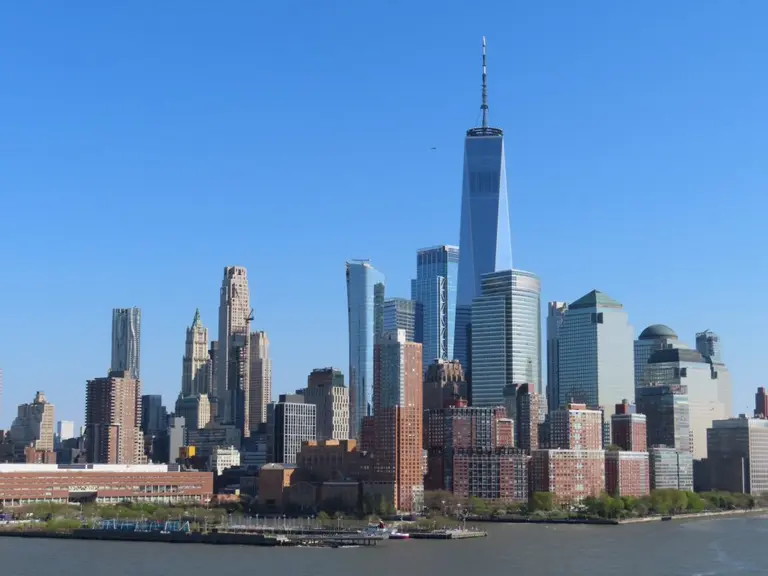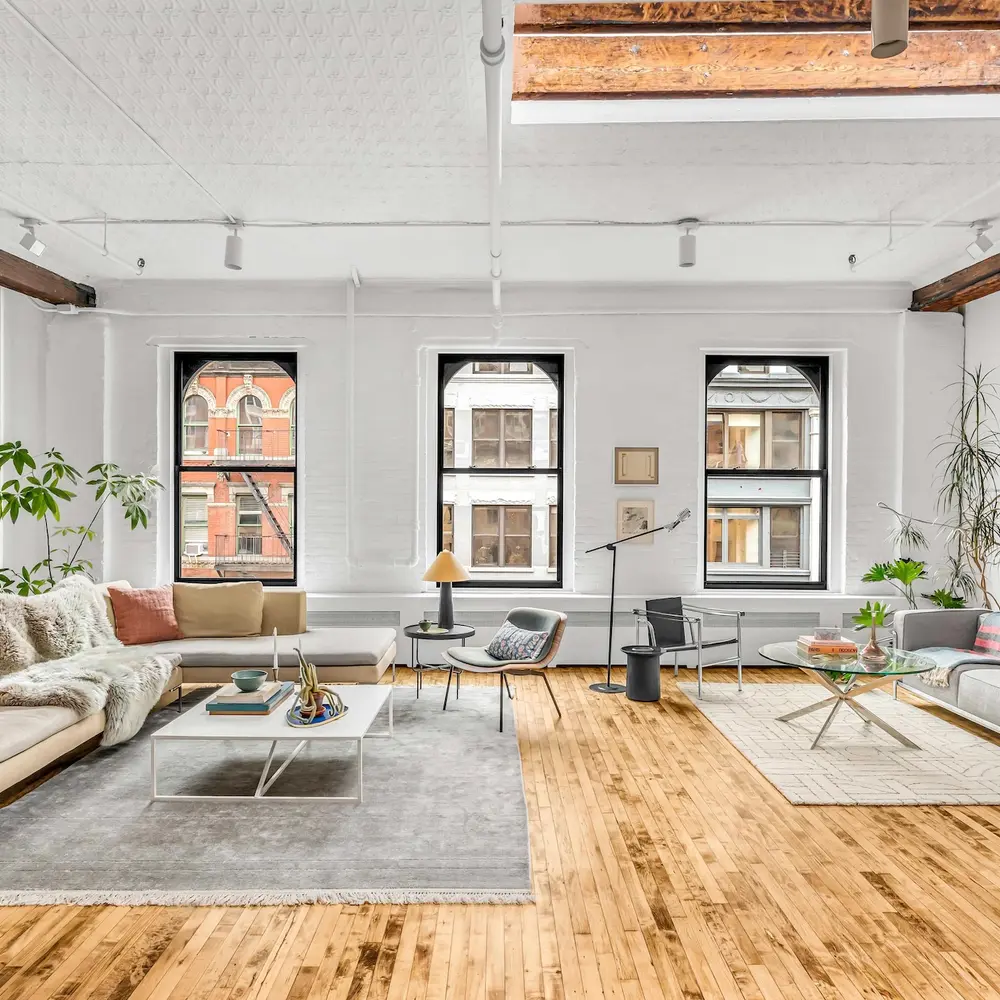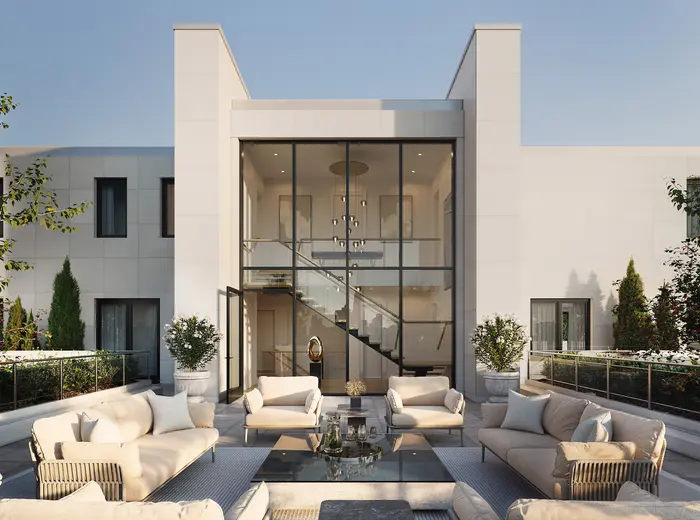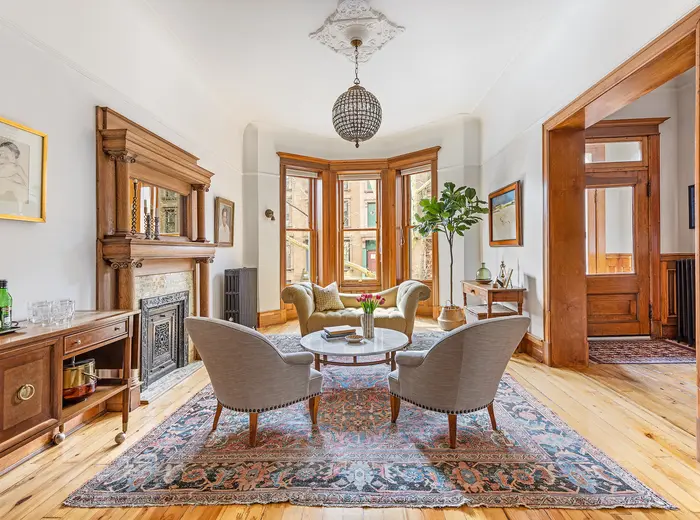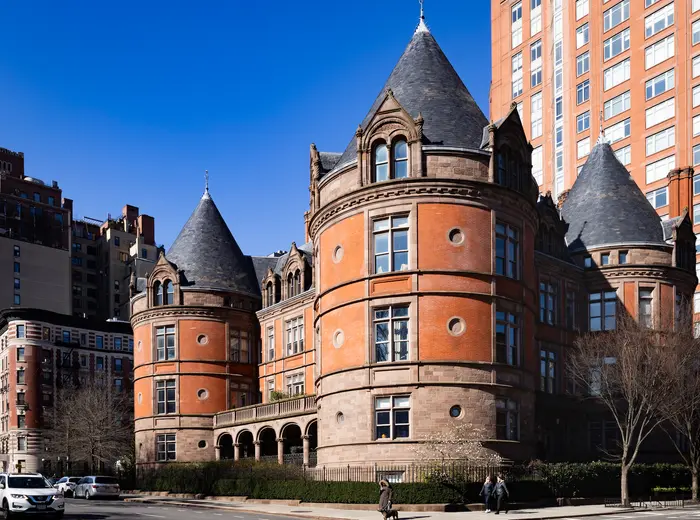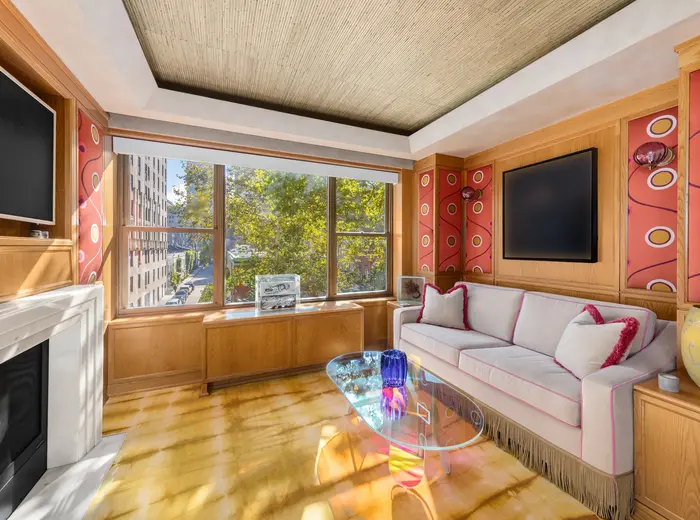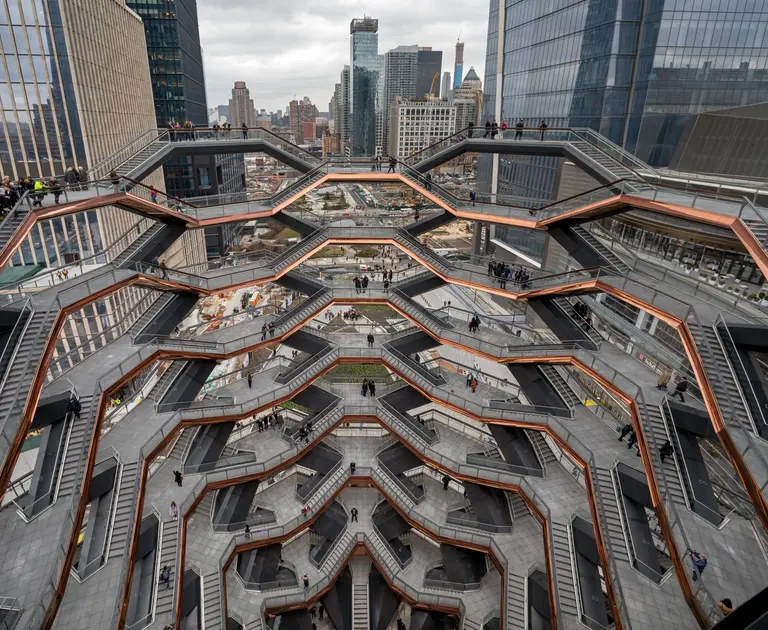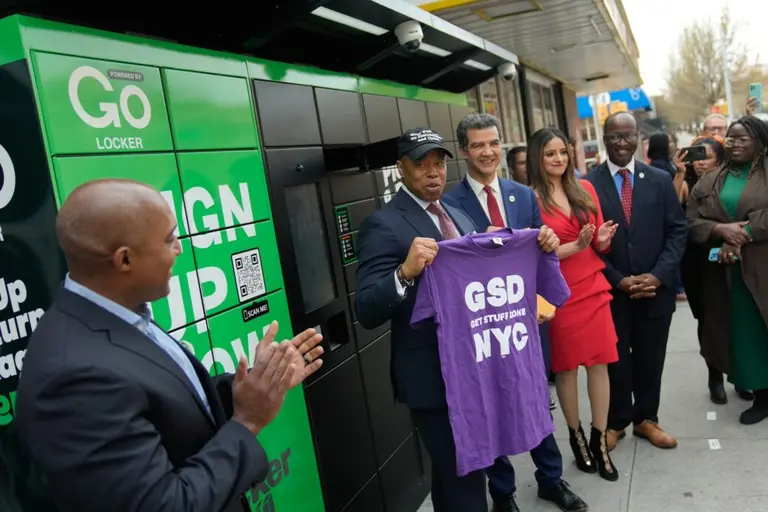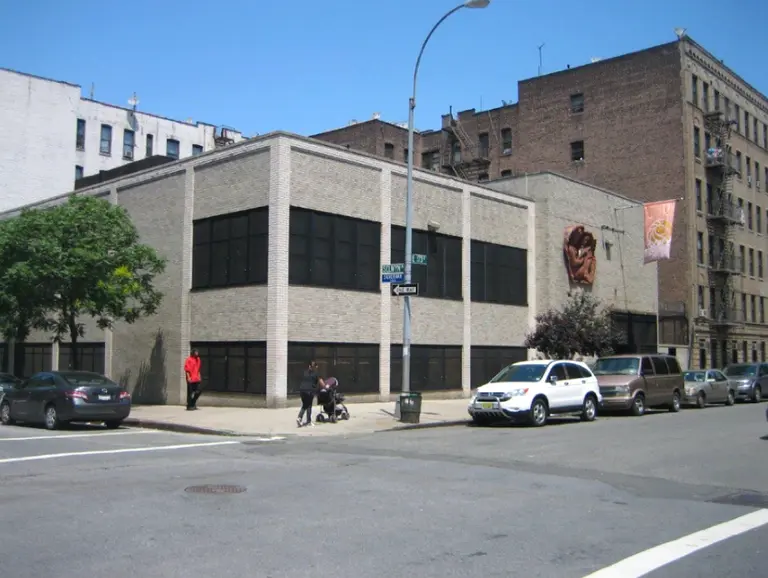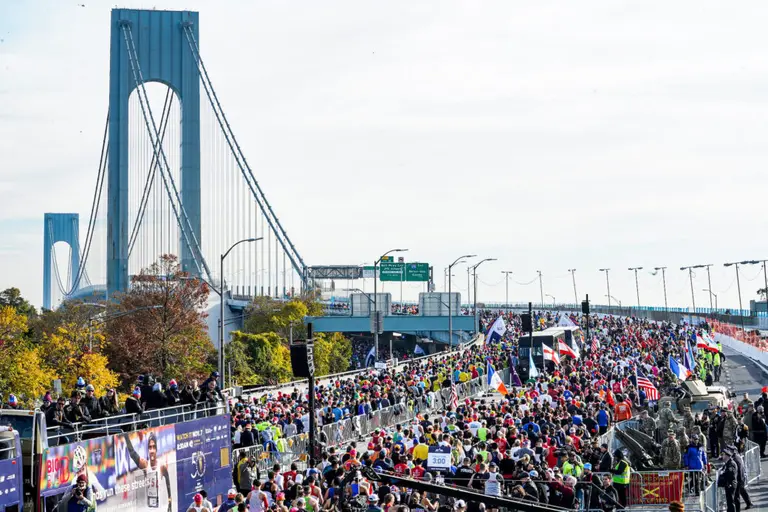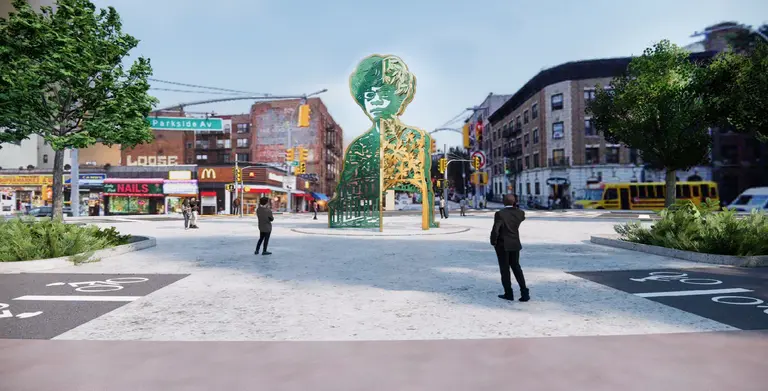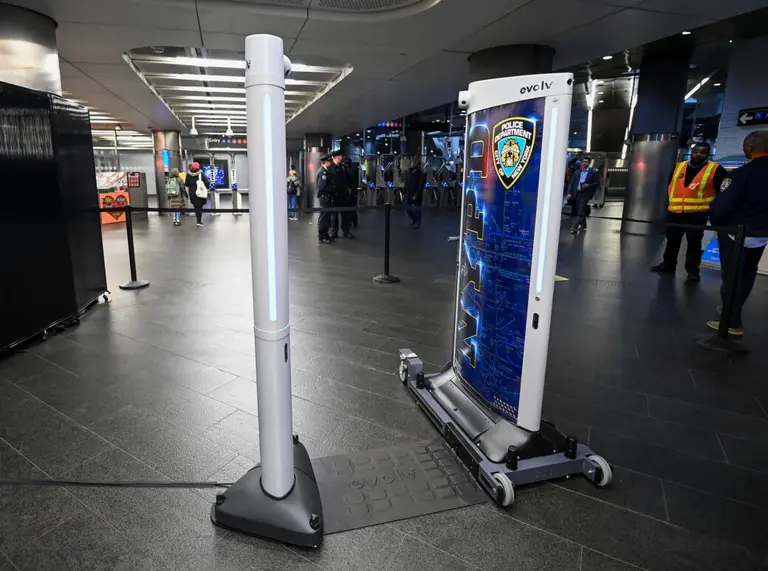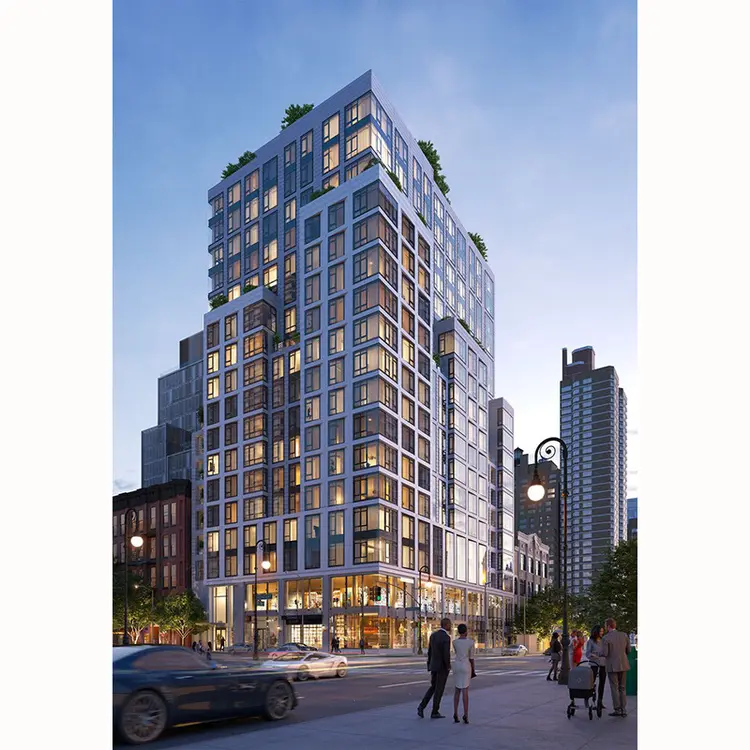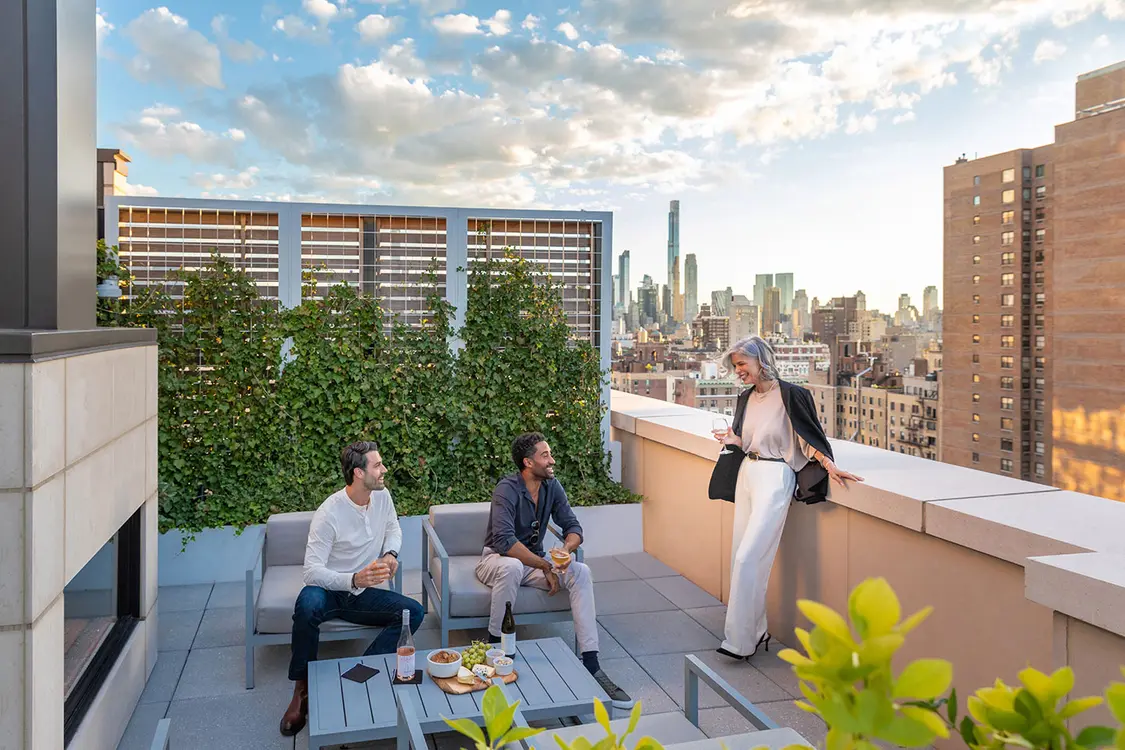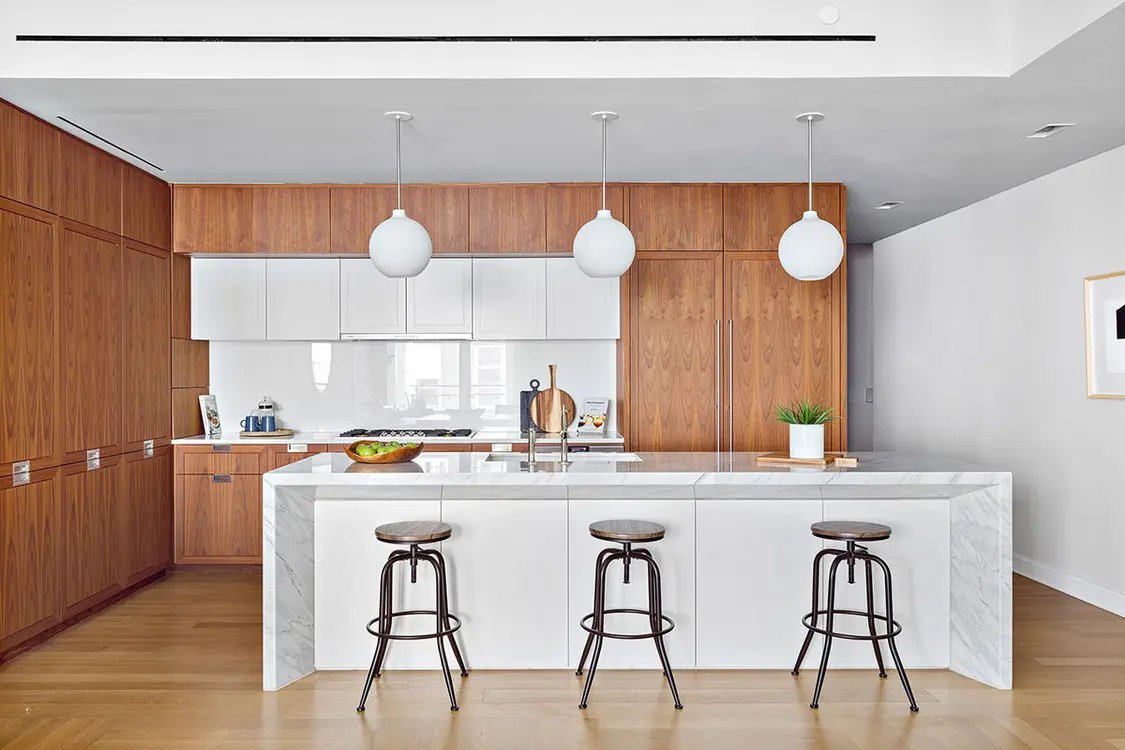Donald Trump’s Stake in Two Major Towers Came From a Lost Battle With China
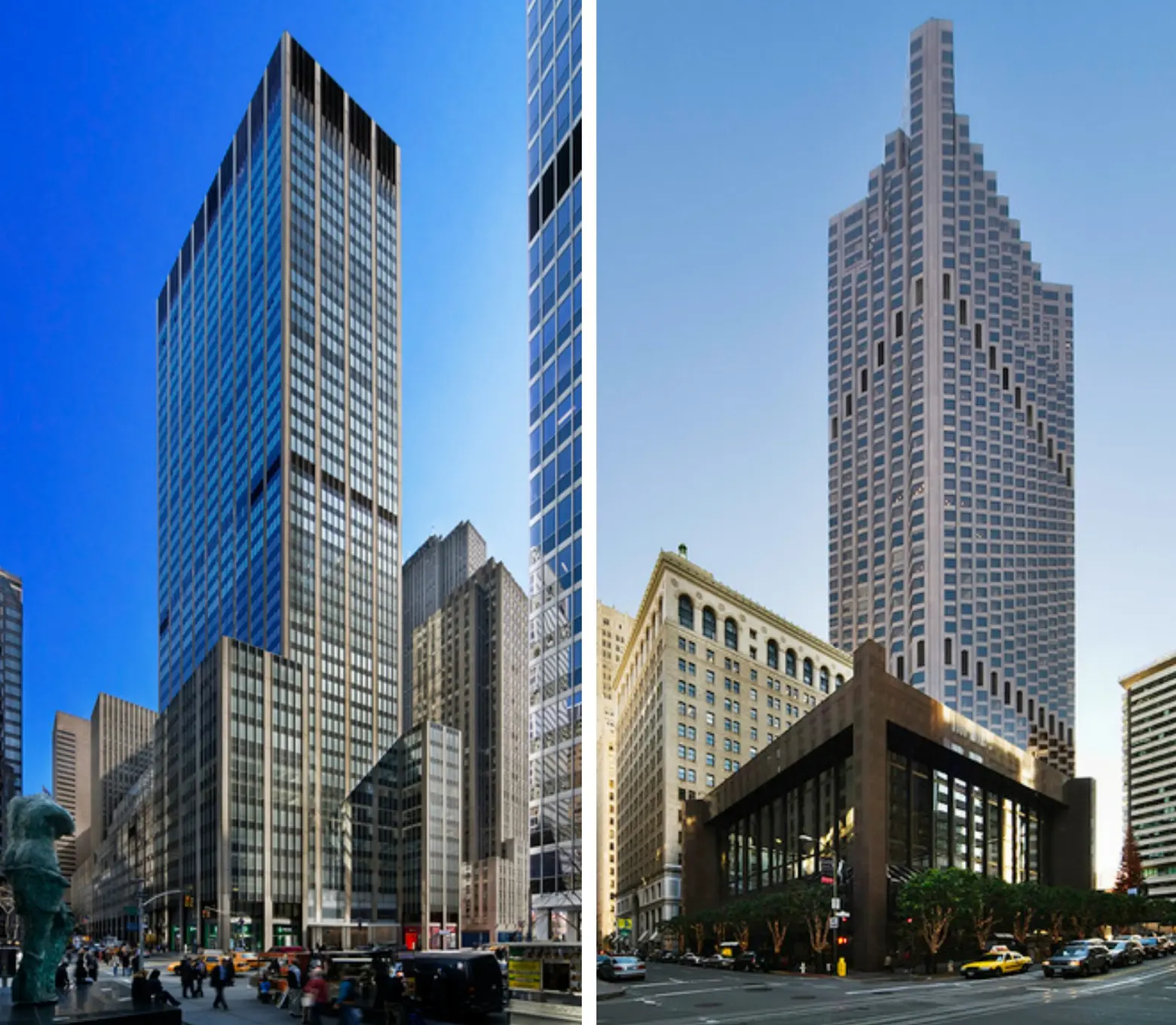
1290 Avenue of the Americas in NYC (L); 555 California Street, formerly Bank of America Center, in San Francisco (R); Images courtesy of Vornado
When Donald Trump made an attempt to own the Empire State Building, he partnered with a foreign real estate investor, in this case from Japan. But it ended in a lawsuit and a public smear campaign before he ultimately sold back his stake. A similar turn of events surrounded his dealings with another high-profile Midtown building and related San Francisco tower; you may recall this quote from the day he announced his candidacy: “I beat China all the time. I own a big chunk of the Bank of America building and 1290 Avenue of the Americas that I got from China in a war. Very valuable.” As the Times explains, the battle may not have gone down quite like the Donald says, with him schmoozing his way to the top and eventually waging a losing legal battle.
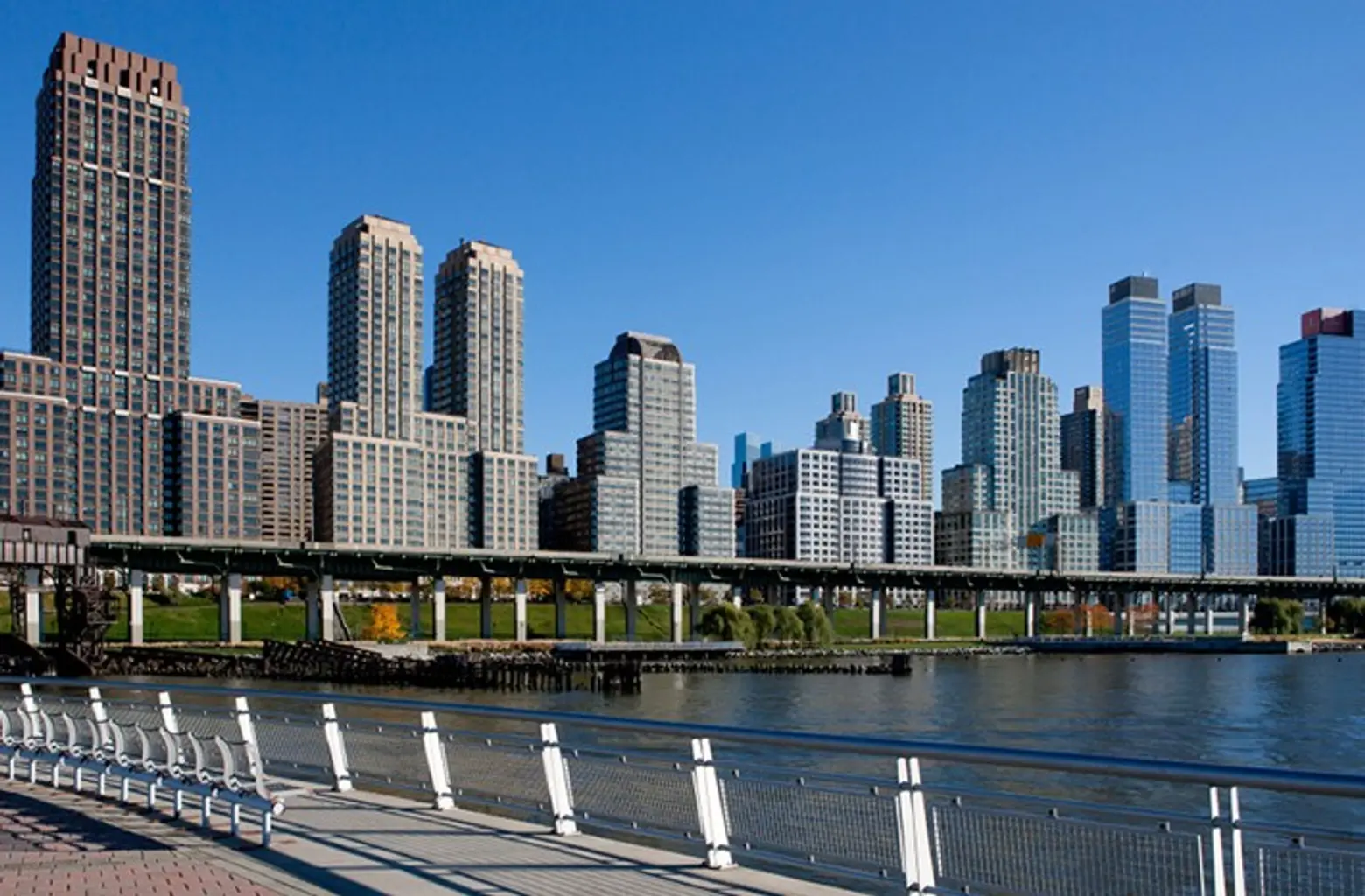
View of Riverside South, via Extell Development
After the 1994 real estate market crash, Donald Trump was majorly in debt, and one of the fallouts was his inability to make payments on Riverside South, a 77-acre site near Lincoln Center that he had bought for $95 million in 1985. It was here that he planned to build a 12,450-unit, mixed-use complex that would have held the world’s tallest building (more on that here). When Chase Manhattan Bank eventually demanded repayment, Trump was bailed out by a consortium of Hong Kong billionaires, which included Henry Cheng Kar-shun, one of the richest developers in the world at the time, and Vincent Lo, considered the Chinese version of Trump for his regularity in the society pages. He sold them 70 percent of the project, and they agreed to finance it with Trump receiving fees for managing its development. They even used his name to market one of the buildings (today’s Trump Place).
In the years following, Trump focused on developing his relationship with the Chinese investors. According to former associates, he “had to attend elaborate dinner parties featuring foreign foods he did not want to eat. He delayed the closing because of Chinese spiritual beliefs and hunted around New York for a ‘feng shui’ master to help with the building décor, instead of indulging his tastes for marble and gold.”
But in 2005, the investors sold Riverside South to the Carlyle Group and Extell for $1.76 billion, believed to be the city’s largest real estate transaction to date. Trump, however, claims that he wasn’t consulted. In a recent interview he recalls: “I said: ‘Why didn’t you come talk to me? Whatever price you got, I could have gotten more money.” Lo disagrees, asking how it would have been possible to broker such a massive deal without him knowing. Trump ultimately sued his partners for $1 billion in damages and sought an injunction when his partners tried to invest the gains from the sale in the Bank of America Center in San Francisco (now known as 555 California Street) and 1290 Avenue of the Americas in New York.
Litigation lasted for four years, with Trump accusing his partners of fraud and tax evasion. He also mounted a more public and personal campaign against Lo, who had launched a Chinese reality show called “Wise Man Takes All” that was similar to Trump’s “Apprentice,” which first aired just one year earlier in 2004. Trump announced that he’d shoot a version of his show in China, and though it never materialized, he publicly insulted Lo’s version.
In the end, a judge ruled against Trump, leaving him with a 30 percent share in the profits from the buildings in a partnership until 2044. The Chinese Partners wasted no time moving away from the Donald. Lo sold his shares to the Cheng family, who then sold to Vornado Realty Trust for $1.8 billion, the current owner of 70 percent of the buildings. It’s estimated today that Trump’s 30 percent interest in the buildings is around $640 million.
Though Trump has said publicly it’s “too bad that this happened,” he also referred to his former partners as “fantastic people” and asked a reporter to “let them know that Donald Trump has great respect for them, O.K.?” When Lo heard this, he laughed and said, “Well, that’s him. To File a lawsuit is nothing. It’s just like having lunch.”
As the Times sums up, “In the end, Mr. Trump’s alliance and eventual rivalry with some of Hong Kong’s richest men proved to be a tale of Mr. Trump at the extremes. It showcased his unflagging confidence in his ability to turn a bad financial situation around. But it also underscored his willingness to destroy a fruitful relationship with aggressive litigation.”
[Via NYT]
RELATED:
